The major goal of the "small three links" (
"It takes longer to get from Xiamen to Kinmen's Liaolo port (料羅灣) than it does to get to the beach. Therefore, we're not sure whether Chinese tradesmen will follow the route we've mapped out for them or just keep trading at the shoreline," chief of Kinmen Harbor Bureau's engineering department (金門港務處工務課) Hsu Cheng-fang (許正芳) told the Taipei Times, warning that trading along the shoreline would still be illegal even after the policy is implemented on Jan 1.
As far as Xiamen tradesmen are concerned, small-amount trade has been a staple means of making a living while, to most of Kinmen's ordinary residents, it has made for an interesting market to visit.
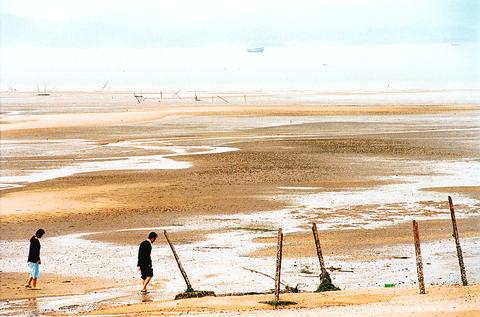
PHOTO: CHEN CHENG-CHANG, TAIPEI TIMES
"It's fun ... kind of like an exercise for us," said local resident A-mei (阿美), who added that she and her friends chase after bargains in the black market mostly out of curiosity.
When coastal police are not around, the so-called "sell and run" (賣了就跑) market often attracts hundreds of cross-strait transactions on the beaches of Kinmen.
However, when the coastal police are watching, it could appear to be nothing but people scattered on the seashore eager to make contact.
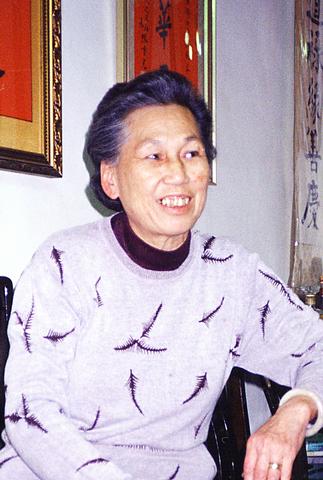
PHOTO: LIBERTY TIMES
Not surprisingly, the police are often looked upon as the enemy.
"You sometimes hear rumors of police beating up Chinese tradesmen, which can generate sympathy from Kinmen residents to their fellow Chinese across the strait, as well as hostility towards our own police," according to Chen Ching-hwang (陳清煌), director of KMT Legislator Chen Ching-pao's (陳清寶) Kinmen office.
"We Kinmen residents actually identify more with Chinese than Taiwanese," said vice president of the Kinmen County Council Hsu Yu-chad (
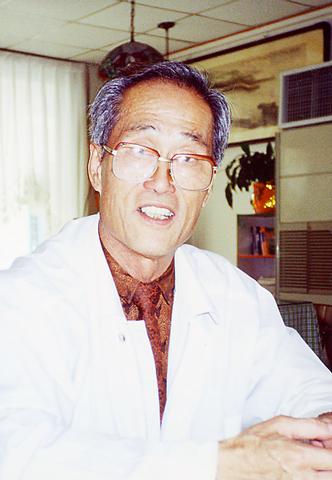
PHOTO: LIBERTY TIMES
Batches of inexpensive goods have long been illegally shipped by Chinese fishermen to Kinmen wholesalers.
Chinese boats would sail in with the rising tide -- chongshan (
Chinese tradesmen began anchoring their boats loaded with a variety of goods in the open sea, then would daringly ride a sampan made of thick polystyrene boards covered with waterproof plastic in order to go ashore. Goods, such as vegetables, seafood and rice, were presented on the sampan for purchase -- a box of 15 apples for only NT$125, an eel for less than NT$200, the prices were almost four times cheaper than those found on Kinmen.
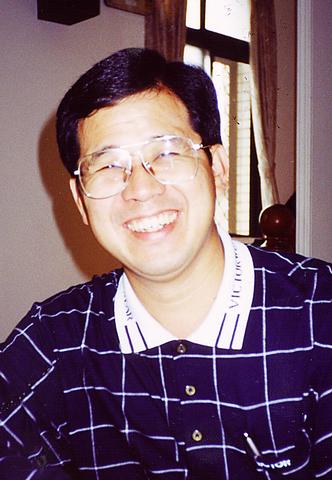
PHOTO: LIBERTY TIMES
The sale of Chinese goods has become so lucrative that tradesmen from Xiamen would rather risk arrest than give up the market.
"When they are caught by the policy, all their goods are confiscated and they're detained for at least a half-day-long interrogation ... but they don't seem to care," said Chen Kin-lu (陳金祿), the owner of a Chinese medicine shop. He said that the tradesmen would sometimes scatter their goods on the beach to deter the police from arresting them.
"Bystanders might sometimes be rewarded by the police with seawater-soaked goods if they failed to catch the traders," Chen added.
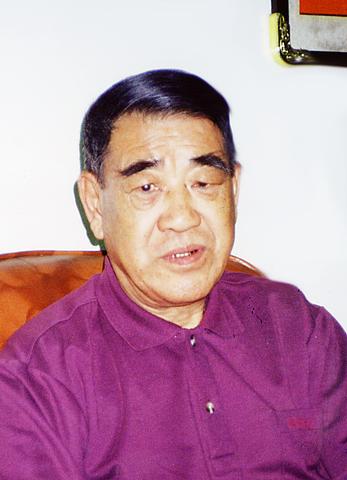
PHOTO: LIBERTY TIMES
Chinese goods may cheap, but quality is a different matter.
"Epidemic diseases may be transmitted from Chinese produce to Kinmen," Hsu said, citing the recent cases of foot-and-mouth disease in Kinmen.
"Without a market price mechanism, you don't really know if what you bought is actually a bargain or if you were ripped off," Chen Ching-hwang said.
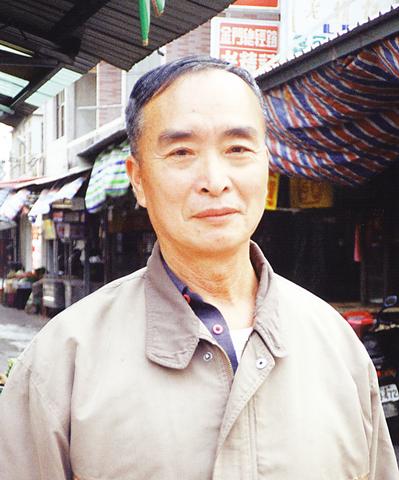
PHOTO: LIBERTY TIMES
"In a market like that, you may pay for a box of useless stones and you still don't know who to argue with," A-mei said jokingly.
But others differed, saying that Chinese tradesmen cherished the market such that they would feel obliged to provide better-quality goods to their customers on Kinmen.Miss Yang (楊小姐)
Grocery store ownerI am not worried that the policy will make it easier for men to have mistresses [in China]. Why? Because wives will be able to track their husbands and follow them to Xiamen, if they dare to have mistresses there. If men can go, so can women. Therefore, I don't think the policy will have a negative impact in this regard. I think people will go there initially out of curiosity and then the fad will gradually fade.
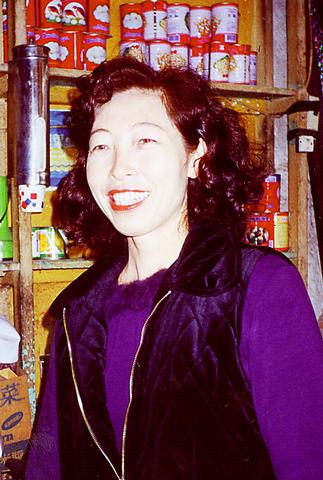
PHOTO: LIBERTY TIMES
Sun Ping-shu (孫炳樹)
Retired
Age: 63There will be more disadvantages than advantages once the direct links take effect. There may be a disruption in social order and a rise in crime. It might have a negative impact on local agriculture as well. There may be a decrease in demand for local fruits and vegetables because those coming from China are so cheap. I don't think residents from Xiamen will offset that -- they simply don't have money to spend.Tsai Bi-feng (蔡碧鳳)
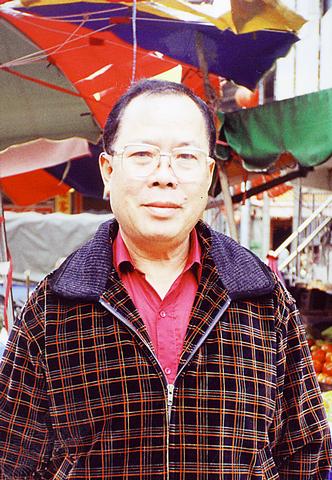
PHOTO: LIBERTY TIMES
Housekeeper
Age: 70A lot of Kinmen residents are putting iron gratings on their doors and windows. In Kinmen, we used to leave our doors open when we were busy with housework and we could leave our doors unlocked even after we went to bed at night. I am worried that some poor Chinese people may commit robberies. The policy certainly benefits the iron grating businesses.
Yang Hsiu-bai (楊秀貝)
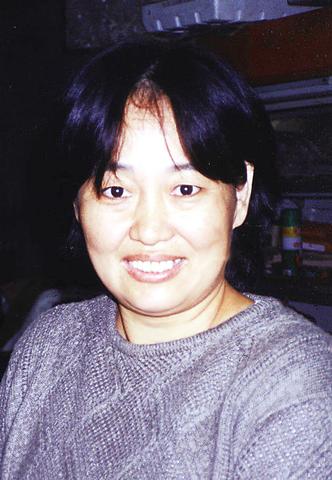
PHOTO: LIBERTY TIMES
Fruit store owner
Age: 40Some tourists may prefer to buy their fruit from China. However, the locals with higher living standards, civil servants for example, may choose not to buy any. They fear that China's fruit, not having been inspected by sanitation and anti-epidemic bureaus first, may contain preservatives and who knows what else. But their fruit is definitely cheaper. In fact, it's almost half as cheap as the fruit grown in Taiwan.
Hsu, Chi-yung (
Former Kincheng township magistrate
Age: 52I am not certain about the policy's prospects since there was no direct cross-strait negotiation conducted beforehand. I also wonder what Chinese laborers will be up to during their stay in Kinmen since they can enter here legally now. There may be a rise in prostitution in Kinmen, whereas now most people enjoy living a simple life.
Chen Ching-hwang 陳清煌
Director of KMT Legislator Chen Ching-pao's (張清寶)Kinmen office
Age: 38 We are looking forward to developing Kinmen into a `duty-free trade center (
Chen Kin-lu (陳金祿)
Traditional Chinese medicine shop owner
Age: 70It doesn't seem as though the policy will affect our daily lives. However, if we are allowed to import Chinese medicine directly from Xiamen, we will take advantage of the cheaper source. But, if the government intends to collect taxes on imported Chinese medicine, it will not help our business. I hope the government lists it as a tax-free item but it looks as though government officials are still undecided.
Tung Shui-yin (董水銀)
Fish shop owner
Age: 60
[Commodities from China] are cheaper and of greater variety. This increased competition will make it very difficult for us to run our businesses. And I don't mean just fish. Any number of goods from China fit this description. [Local products] will be harder to sell! I don't think the policy will help Kinmen in any way.

SECURITY: As China is ‘reshaping’ Hong Kong’s population, Taiwan must raise the eligibility threshold for applications from Hong Kongers, Chiu Chui-cheng said When Hong Kong and Macau citizens apply for residency in Taiwan, it would be under a new category that includes a “national security observation period,” Mainland Affairs Council (MAC) Minister Chiu Chui-cheng (邱垂正) said yesterday. President William Lai (賴清德) on March 13 announced 17 strategies to counter China’s aggression toward Taiwan, including incorporating national security considerations into the review process for residency applications from Hong Kong and Macau citizens. The situation in Hong Kong is constantly changing, Chiu said to media yesterday on the sidelines of the Taipei Technology Run hosted by the Taipei Neihu Technology Park Development Association. With

CARROT AND STICK: While unrelenting in its military threats, China attracted nearly 40,000 Taiwanese to over 400 business events last year Nearly 40,000 Taiwanese last year joined industry events in China, such as conferences and trade fairs, supported by the Chinese government, a study showed yesterday, as Beijing ramps up a charm offensive toward Taipei alongside military pressure. China has long taken a carrot-and-stick approach to Taiwan, threatening it with the prospect of military action while reaching out to those it believes are amenable to Beijing’s point of view. Taiwanese security officials are wary of what they see as Beijing’s influence campaigns to sway public opinion after Taipei and Beijing gradually resumed travel links halted by the COVID-19 pandemic, but the scale of

A US Marine Corps regiment equipped with Naval Strike Missiles (NSM) is set to participate in the upcoming Balikatan 25 exercise in the Luzon Strait, marking the system’s first-ever deployment in the Philippines. US and Philippine officials have separately confirmed that the Navy Marine Expeditionary Ship Interdiction System (NMESIS) — the mobile launch platform for the Naval Strike Missile — would take part in the joint exercise. The missiles are being deployed to “a strategic first island chain chokepoint” in the waters between Taiwan proper and the Philippines, US-based Naval News reported. “The Luzon Strait and Bashi Channel represent a critical access

Pope Francis is be laid to rest on Saturday after lying in state for three days in St Peter’s Basilica, where the faithful are expected to flock to pay their respects to history’s first Latin American pontiff. The cardinals met yesterday in the Vatican’s synod hall to chart the next steps before a conclave begins to choose Francis’ successor, as condolences poured in from around the world. According to current norms, the conclave must begin between May 5 and 10. The cardinals set the funeral for Saturday at 10am in St Peter’s Square, to be celebrated by the dean of the College